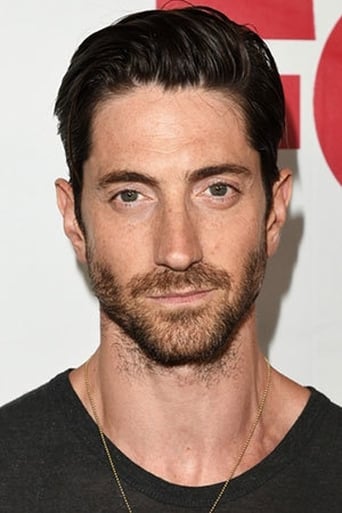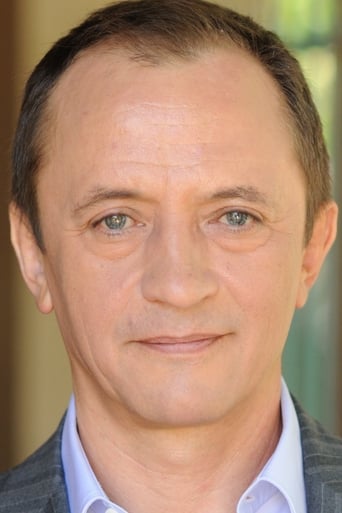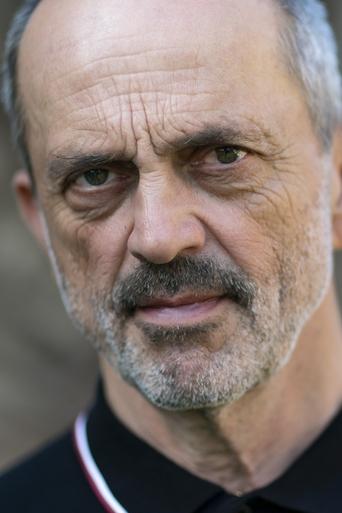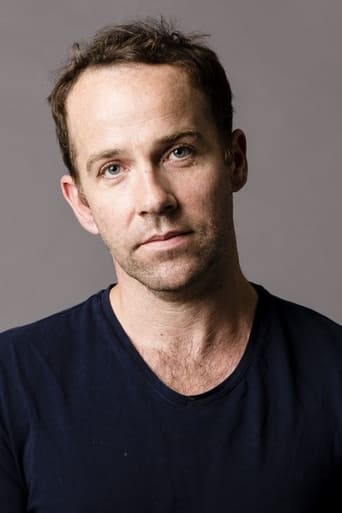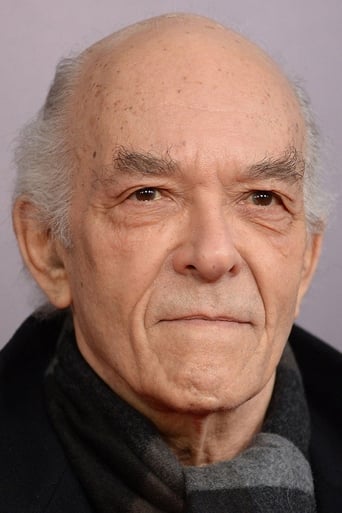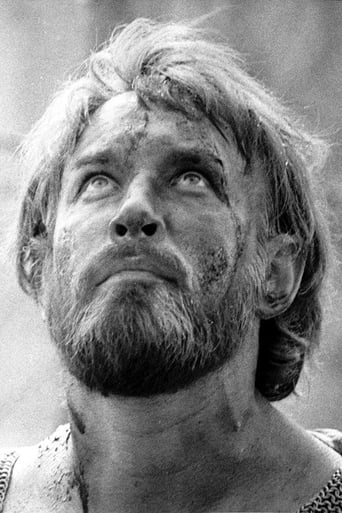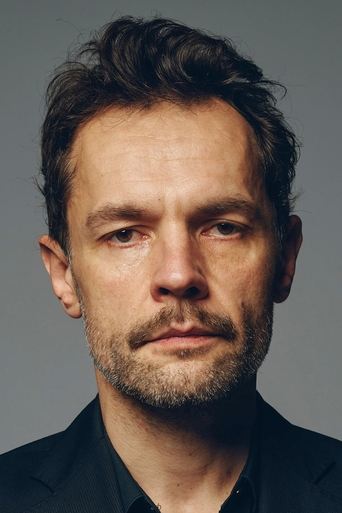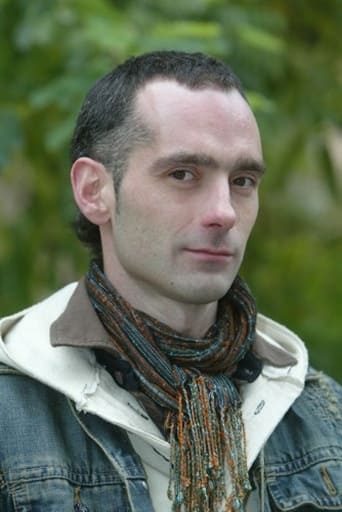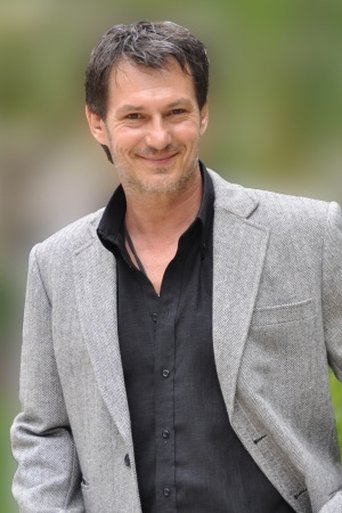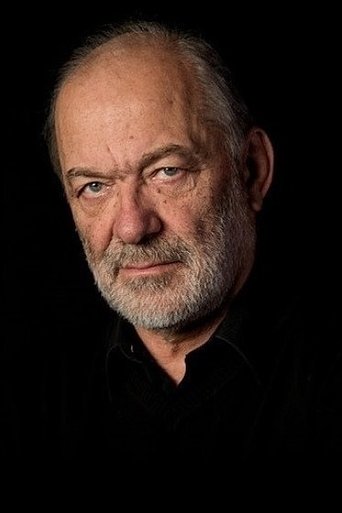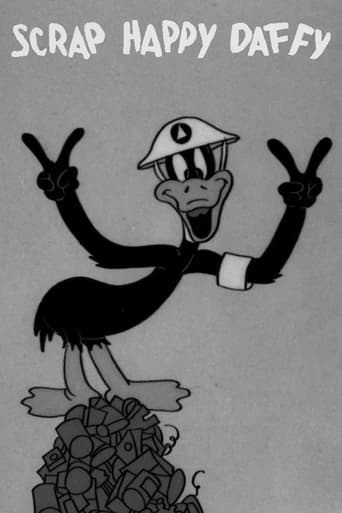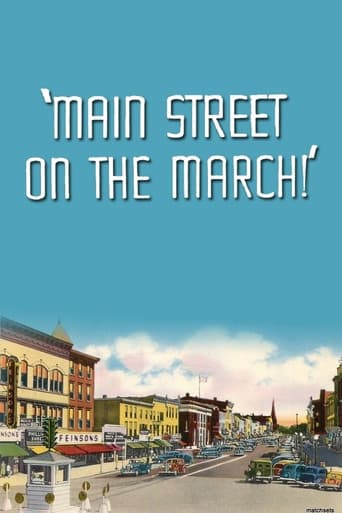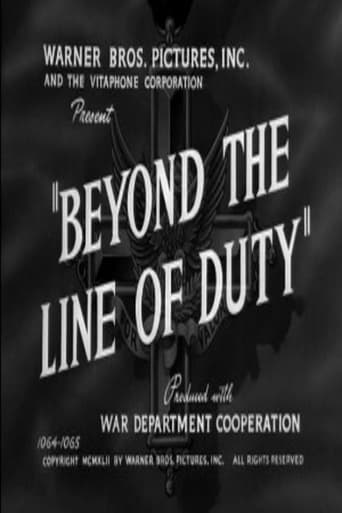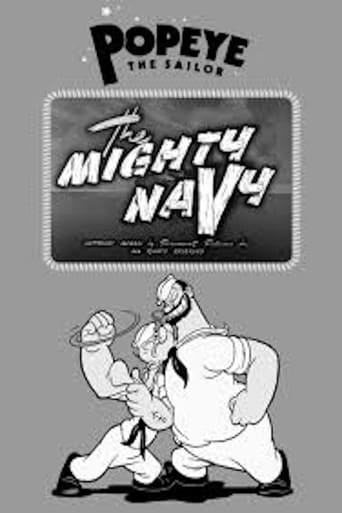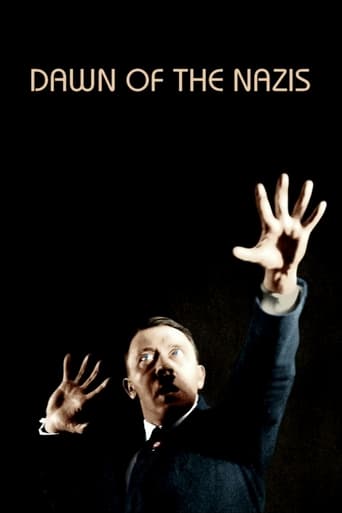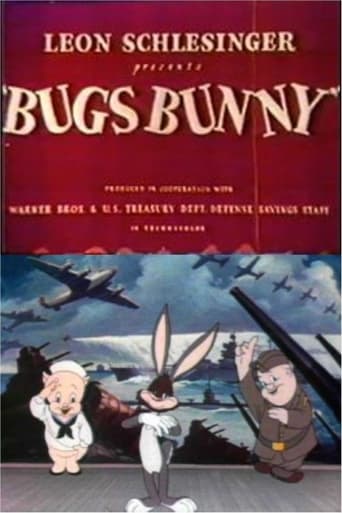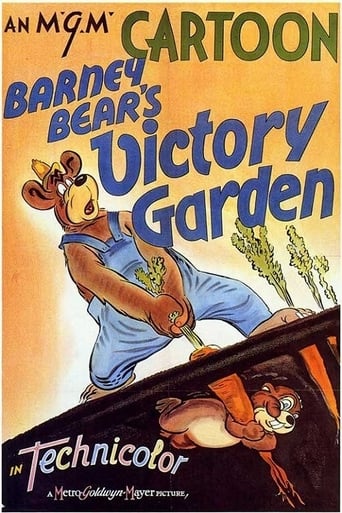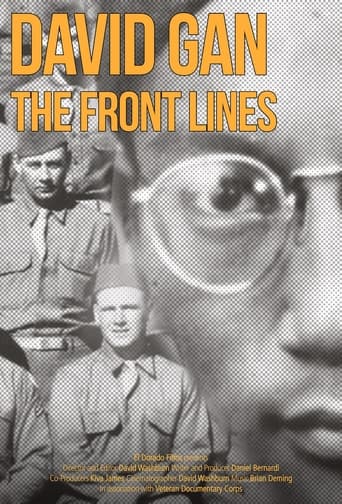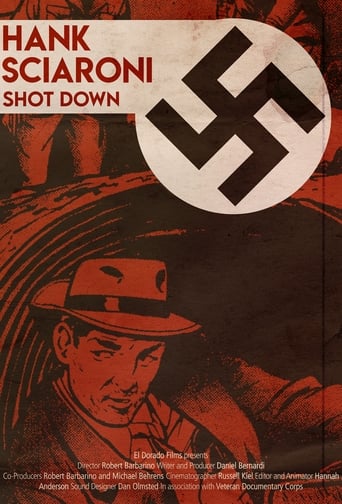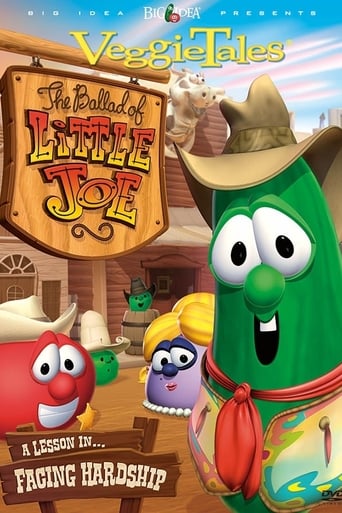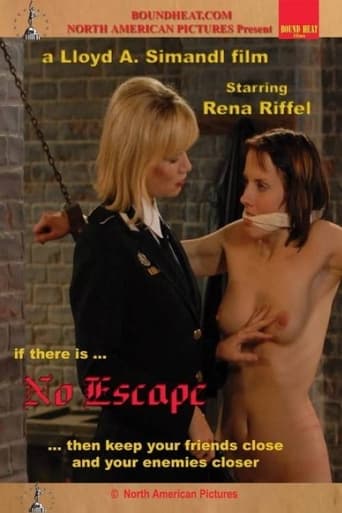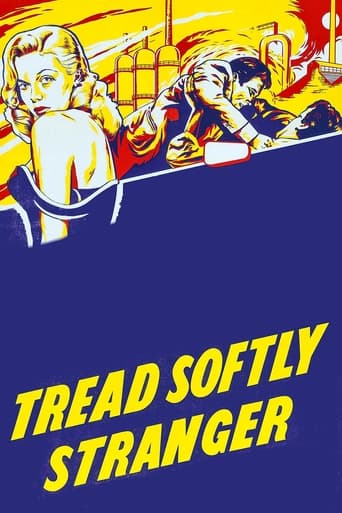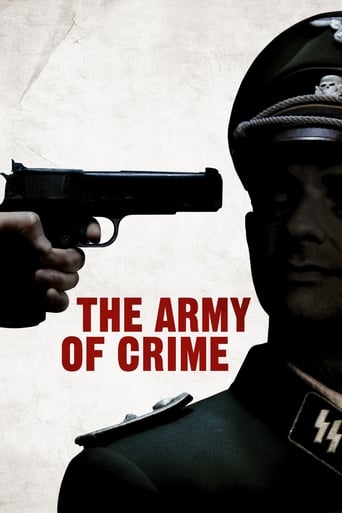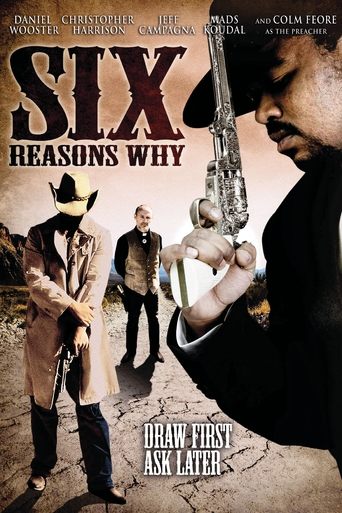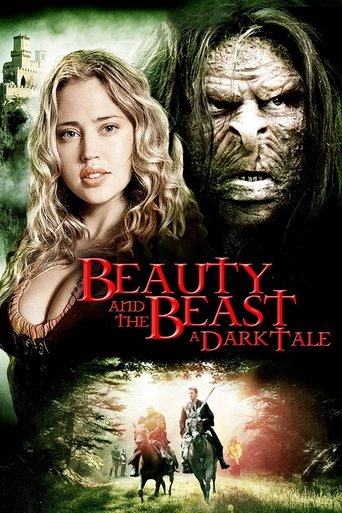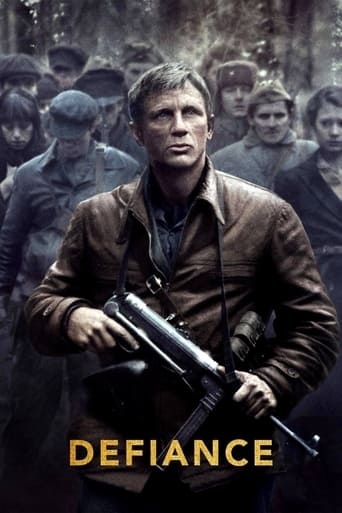
Defiance (2008)
Based on a true story, during World War II, four Jewish brothers escape their Nazi-occupied homeland of West Belarus in Poland and join the Soviet partisans to combat the Nazis. The brothers begin the rescue of roughly 1,200 Jews still trapped in the ghettos of Poland.
- Edward Zwick
- Jayne-Ann Tenggren
- Clayton Frohman
- Edward Zwick
- Nechama Tec
Rating: 6.8/10 by 1723 users
Alternative Title:
Um Ato de Liberdade - BR
Unbeugsam - DE
Defiance – Für meine Brüder, die niemals aufgaben - DE
血戰 Defiance - HK
反抗军 - CN
血戰 - HK
Country:
United States of America
Language:
Deutsch
Pусский
English
Runtime: 02 hour 17 minutes
Budget: $32,000,000
Revenue: $51,155,219
Plot Keyword: sibling relationship, fight, brother, world war ii, forest, camp, partisan
**_Survival in the woods during WW2_** As Nazi forces sweep through Eastern Europe in 1941 the Bielski brothers (Daniel Craig, Liev Schreiber and Jamie Bell) seek refuge in the deep forests on the border of Poland and Belorussia (Belarus). More and more desperate Jews join their ranks for common protection and to oppose the occupying Germans. How can they all survive in the woods during the next four years of war? Released in 2008-2009, "Defiance" is a drama/war film that has a lot going for it: a story based on actual events, good actors, authentic locations (filmed in Lithuania, a mere 100 miles or so from the actual sites), effective cinematography and a quality score. I personally love survival-type films and "Defiance" fills the bill, although it's not great like, say, "The Last of the Mohicans" (1992). The filmmakers throw in all kinds of dynamic things to maintain the viewer's attention: Numerous gun battles, an airstrike and a tank, which are all faithful Hollywood-isms. It would've been better to simply focus on the characters and their gritty survival story. How about a deeper examination of individuals reduced to basic necessities? What about a study of people stripped of all civilized influences, struggling with the animalistic side of their psyche, as depicted in the excellent "Sands of the Kalahari" (1965)? How about the immaterial yet palpable bond of love which unites and gives life even in the worst possible conditions? There's some of this, of course, but I wanted it to go deeper, like in "The Flight of the Phoenix" (1965). One thought-provoking scene concerns a man seeking to join the ever-growing group in the woods wherein he is asked what he does in order to determine how best to utilize his skills. He ponders it a moment and replies that he's "an intellectual." There's of course little use for an intellectual in such a forest community. The region was largely agrarian and so the peasant-types were skilled in at least one practical area as farmers, craftsmen or laborers. But what use was an "intellectual"? How many of us are intellectuals and would largely be useless in such a scenario? We'd learn new skills real quick, huh? So the picture works on a what-if level: How long will our present society endure as it is before many of us are forced to live primitively in the sticks? If that happens, I hope you're more than just "an intellectual." "Defiance" is worthwhile if the survival-in-the-woods plot piques your interest. It's superior to the similar "Tears of the Sun" (2003), but IMHO not quite as good as "Hornet's Nest" (1970) and "Sands of the Kalahari," although it's not far off. The movie runs 2 hours, 17 minutes. GRADE: B/B-
Historically incorrect, Jewish propaganda. Jewish guerilla were not war heros and did not fight Nazi. Instead, they collaborated with Russian underground, stole properties from the villagers and farms for their needs and reselling for Russians. During these robberies they committed unspeakable crimes, leaving them with no chances to survive. They were no heroes to tell stories about, they were war criminals.
Two Jewish brothers - "Tuvia" (Daniel Craig) and "Zus" (Liev Schreiber) are leading a ramshackle group of escapees from the Nazis into the depths of the Belorussian forest. With little food and weapons, their imperative is to try and build some sort of shelter to see them through the harsh winter whilst trying to find allies to help them survive. This is no mean feat, with hundreds of mouths to feed, and it sorely tests the faith of many and the resilience of their commander who is increasingly at odds with his more pro-active brother. It's "Zus" who finally decides to leave and join the approaching Red Army battalion and that leaves "Tuvia" and another brother "Asael" (Jamie Bell) with quite a challenge as sickness and starvation loom. This isn't a particularly well written drama, nor is Craig really that great either. What works here is the sense of desperation that Edward Zwick manage to present us with. The dense forest, the snow, the wind, the darkness and the wolves. The drudgery of these ordinary people reduced to living little better than animals facing a relentless foe that is bent on an irrational plan of slaughter. Tomas Arana does quite well, if sparingly, as the Soviet commander who is suspicious of his Jewish (traditionally non-combatant) cohort and who is also, clearly, a man who probably ought not to be trusted too far. Just to lighten the mood, the under-used Bell gets a little bit of love interest for when the meagre fires die down of a cold evening. In an environment where it really is live or die, the story touches on issues of collaboration and shows us another hugely effective method employed by their enemy to subdue - and keep subdued - a population ill-equipped to survive hand-to-mouth. It is too long - half an hour could come out without savaging the plot, but it's still worth a watch. Just keep a blanket nearby.










